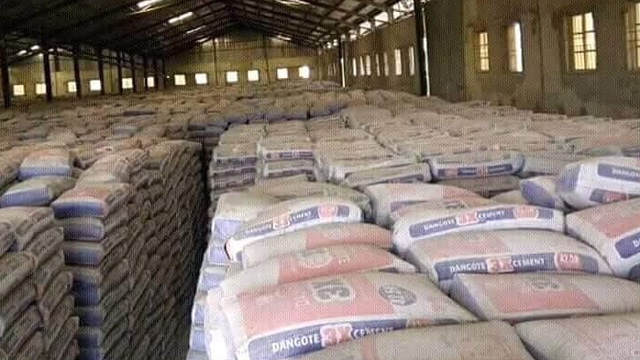The Cement Producers Association of Nigeria has warned the federal government against the planned migration to concrete roads, saying if the plan sails through, the cost of a bag of cement is likely to shoot up to N9,000.
The manufacturers said while it was ordinarily a good plan, it would be better to implement it concurrently with existing asphalt technology until the supply side of cement is addressed.
The association, in a statement jointly signed by the Prince David Iweta and Chief Reagan Ufomba, National Chairman and National Secretary, respectively, commended the works minister’s position on cement-made roads but said it was more important to permanently address the perennial cement price hike problem by facilitating larger participation in the cement industry, noting that Nigerians have no business buying cement for more than N5,600 per bag.
The cement producers urged the government provide ample time for a smooth transition that allows contractors to invest in commensurate and requisite equipment and retooling.
The association also appealed to the government to conclude the backward integration policy of the late Umaru Musa Yar’adua administration, which according to it, was already bringing availability and affordability of cement in the country.
“ What our nation needs is cement that is available and affordable. And this cannot be achieved by mere wishes, faulty policies and programmes, without breaking the chain of monopoly and favouritisms. Nigerians are tired of waiting for a downturn in the price of cement and for decent and affordable housing.
“We call on the Tinubu government to permanently solve this perennial cement price hike problem by expanding participation in the sector with companies who have verifiable evidence of local investment, including greenfield licenses and quarrying. As a matter of fact, we call on the government to more specifically conclude the backward integration policy of the late Yar’adua administration which was already bearing availability and affordability fruits.
“As patriots, it is our view that the government reintroduces backward integration policy and the conclusion of old ones. Consequently, the government cannot be seen to approbate and reprobate by deregulating issues of petroleum products and foreign exchange on one hand and regulating on pricing of cement, essential goods and services on another. There is a need for policy harmonisation and convergence between fiscal and monetary policies.
“Finally, we call on the government to urgently intervene in the foreign exchange market, intervene in restructuring bad loans of manufacturers, and review palliative modules. The cry for elusive FDI will be drastically reduced if all manufacturing concerns are revived. The government must be decisive in the kind of economic policies it intends to foist on the people,” the statement added.









